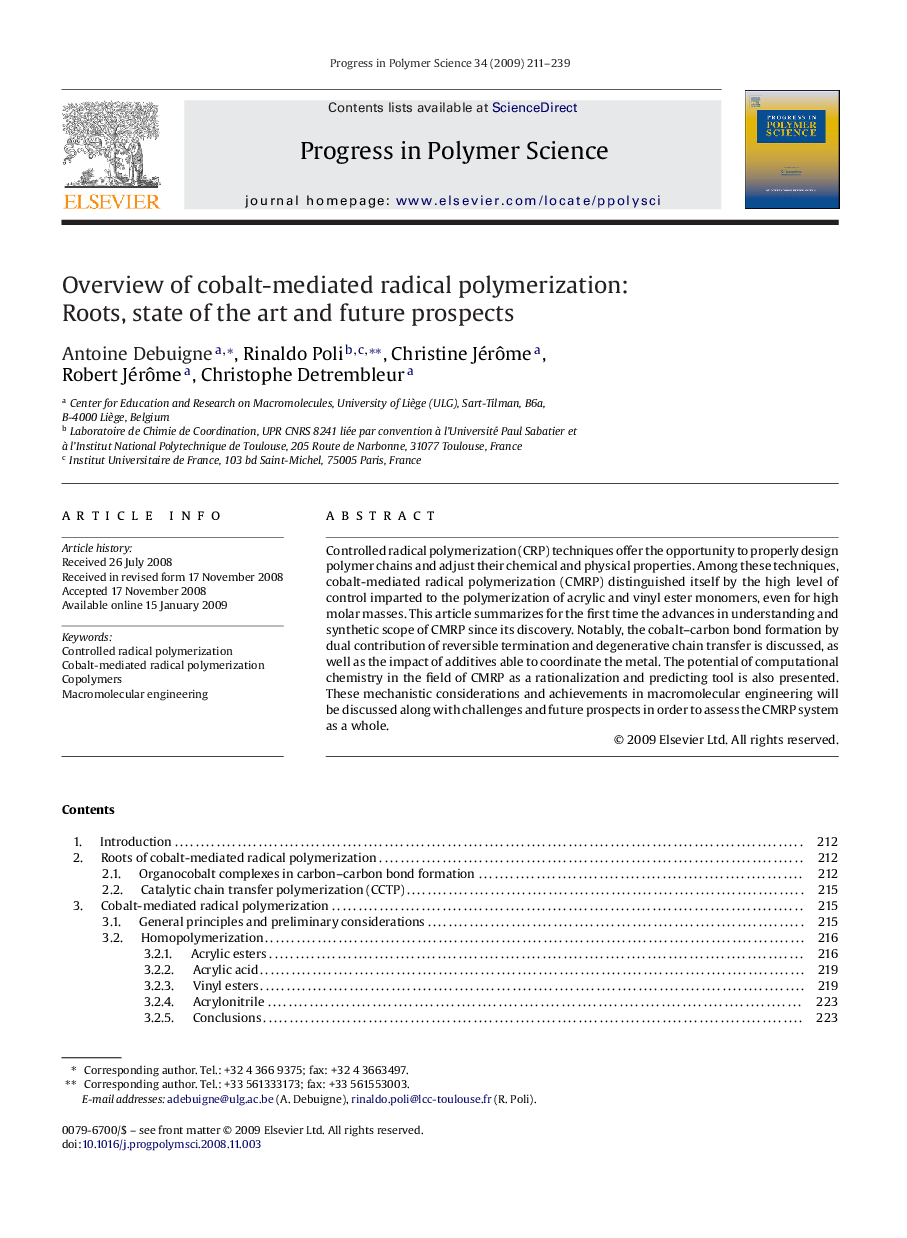| Article ID | Journal | Published Year | Pages | File Type |
|---|---|---|---|---|
| 5208891 | Progress in Polymer Science | 2009 | 29 Pages |
Controlled radical polymerization (CRP) techniques offer the opportunity to properly design polymer chains and adjust their chemical and physical properties. Among these techniques, cobalt-mediated radical polymerization (CMRP) distinguished itself by the high level of control imparted to the polymerization of acrylic and vinyl ester monomers, even for high molar masses. This article summarizes for the first time the advances in understanding and synthetic scope of CMRP since its discovery. Notably, the cobalt-carbon bond formation by dual contribution of reversible termination and degenerative chain transfer is discussed, as well as the impact of additives able to coordinate the metal. The potential of computational chemistry in the field of CMRP as a rationalization and predicting tool is also presented. These mechanistic considerations and achievements in macromolecular engineering will be discussed along with challenges and future prospects in order to assess the CMRP system as a whole.
